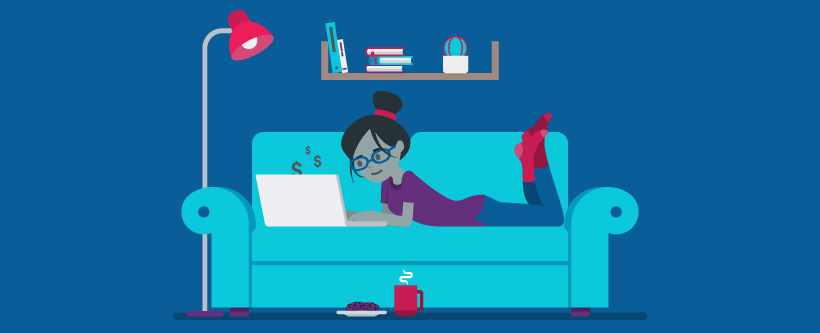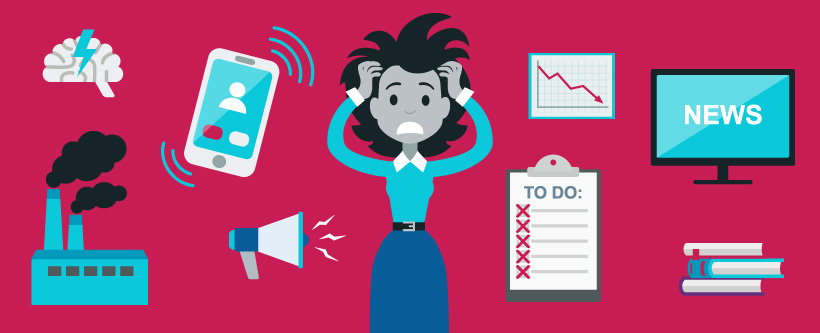What is the appropriate freelancer etiquette for working through a personal emergency? Stay calm and professional. Communicate time-off requests to clients without going into unnecessary detail. Don’t work through extreme circumstances. Finally, reassure your clients that you will be back on the job soon.
“I am so sorry I didn’t make our scheduled call this morning. I stubbed my toe while wearing sandals, and tore off one of my toenails, and my shoe was filling with blood.”
Thanks to the guardian angels who grant me occasional self-restraint and professional awareness, I was not the person who said that out loud to a client. Rather, it was a potential event partner who said it to me. And I will never forget her… toe. I probably will forget everything else about her, but just carry an image of her bloody dirty foot in my mental scrapbook forever.
The point of this gross story is that, as a freelancer or contractor, you can lose perspective on your professional parameters. Freelancers and remote workers often exist in a bubble outside of 9-to-5 norms. They push themselves beyond reason in order to always make deadlines, and always be on-call to their clients. On the flip side, they become unused to office protocol, anxious around “being out of the loop,” oftentimes starved for conversation. A few years of this imbalance, and Mr. Always-On Consultant becomes “that guy who shared intimate details of a medical procedure with a client, when the far more prudent decision would have been to just take three days of personal time. “
Personal emergencies come in all forms: physical, emotional, petty, headline-making, weather-related and seemingly relentless. Working through them when you are not an employee — especially trying to be present in an office — is usually not necessary. The “gig economy” may make you feel like it is. Your client deadline may also make you feel that way, no matter what expectations you set beforehand. But it is not; nor is it better for the project.
Clients, if you’re reading this: It’s not better for you either.
Anecdotal tips on freelancing during crises
1. Sometimes, working from home is the smartest decision.
My sister, an executive at a non-profit with offices on both coasts, remembers that during Hurricane Sandy, her New York office was temporarily shut down. The employees were offline for an unspecified time. Then, they resumed work on flexible schedules, not resuming their normal Monday-Friday office hours till they’d handled their personal post-catastrophe business. Although the company doesn’t have contractors or freelancers, they do allow people to work from home not only during major emergencies, but when it improves work-life balance.
“Working from home needs to be an option when people are sick or their schedules require it. The bottom line is whether projects are completed, deadlines are met, and money comes in,” she says — reflecting the opinion of most best-practices employers.
If you are not full-time salaried but have an onsite contract, it’s reasonable to expect even greater WFH flexibility than full-time employees get. This doesn’t just apply to natural disasters. If you are ill, or there’s a problem in your home only, or any major issue demands your attention at home, then that’s where you should be.
Send a simple message communicating that, while you are physically okay, there is an urgent situation, and you will be working remotely with limited communication until things are normal. Let your supervisor know that once normalcy is restored, you’ll be back in the office and can go over the work in person.
2. Remember: The only people who win badges for working through a natural disaster are first responders.
People without FT salaried/benefited positions often are driven by a need for billable hours — but when dealing with personal or national emergencies, it’s reasonable to arrange to make up those hours later.
I actually am one of those crazy consultants who try to work right through disasters. In fact, I attempted to dial in for client conference calls the day after Hurricane Irma blew through Miami Beach. The neighborhood was an actual disaster zone, with police not allowing anyone to enter. Huge trees were downed on every block; broken glass filled the streets; people were fighting over the sole functioning power supply outlet. Yet I thought it was crucial to dial into a Skype casting. After a half-hour, I realized it was not only impossible, but maybe dangerous to be out looking for Wi-Fi.
Three days later, I received an email from my client, “We are having trouble hearing you.” By that point, she had received the only communication I really should have been sending the day after a hurricane. It was a text that simply said: Power and cell phone towers still down. I’ll pick this back up as soon as I can.
If physical or telecommunication circumstances are preventing you from handling your business, it makes no sense to attempt pretending like everything is normal. People will figure out how to handle your part until you return. As soon as you are back, message your supervisor that you’ll make up the work you missed and will be billing as usual for the month.
3. The designated communicator has the toughest balancing act of all.
The people who work in communications or social media for a company at the center of a disaster are often faced with a very tough situation, because oftentimes, thousands of people from outside the area want information, clarification or just want things to carry on as normal, when that’s impossible. The communications/social community teams are the ones expected to communicate with all those out-of-towners.
In the case of the recent Northern California fires, many people in the wine industry chose to communicate via social media — some posting constant videos or photo updates. Jim Caudill, who has a full-time communications job for Treasury Wine Estates and also works as a consultant around wine country, was one of them. The first posts helped him personally process what was happening.
“When we were awoken by a friend who needed help evacuating her horses from her place close to Napa, we quickly discovered that we need to evacuate as well, with our own horses,” Caudill explains. “My first post was probably driven by a sense of nervousness, because no one could know in those early moments what was about to happen. So I posted some middle of the night videos describing what I was seeing at home in Bennett Valley, and I quickly heard from people thanking me.”
Almost immediately, the posts became a way to share what was happening with colleagues from all over the world.
“There was so much mis-information beginning to show that I felt a need to reassure friends and family, and our larger wine community, about some on-the-ground experiences and information I could personally vouch for,” Caudill continues. “The more I did, the more shares and thanks I got. And honestly, it was a bit cathartic. I’m now posting recovery images of the incredible transformation that is happening all around us, as nature asserts itself and turns blackened hillsides to green. And there is so much good to share about various efforts to help people most affected by the fires.”
4. When your brand is crisis, self-care is recommended!
Sonia Diaz is Director, Public Relations and Digital Strategies at Balsera Communications, a Miami-based PR company that offers both crisis PR and public advocacy service. Her staff is “always on,” and immediately responsive during client emergencies. But Ms. Diaz actually believes that, because they don’t take normal weekends and evenings off, when a personal emergency does arise, her staff and contractors deserve leeway to handle it.
“Because the nature of our business is so demanding, we tend to be more lenient when someone needs something,” she says.
This does not only pertain to headline-making disasters, either. Personal emergencies also merit time and empathy.
“When you know that you can count on a team member, no matter what, it is important to show your appreciation not only through compensation and other incentives, but by being flexible in times of need. Employers and supervisors need to use discernment in these situations. As long as there is a balance and the person isn’t always in a perpetual state of crisis, there should be room for some allowances.”
5. Making the ask…
When asking for that time off, no matter how emotionally fraught you might be, it’s important to stay professional and provide just enough detail so that the right people understand the gravity of the situation — but no more than that. Even if the painful details are consuming your mind, do not share them in the moment you’re asking for time off to deal with them. At that point, you’ re not just removing yourself as a resource — you’re eating up your boss’s attention as well.
Rick Dobbs, who owns bars in the East Bay, and employs 50 people — a mix of full-time onsite staff and remote-based service providers — believes in giving people time off for any type of personal emergency. He also believes in “family first” even when it’s not technically an emergency. He knows that emergencies usually mean zero advance notice, and inconvenience for the boss. But in the long run, he thinks it’s more cost-effective to let them do it.
But even Dobbs does not want to see “a wall of text” from an employee who’s taking a personal night. “Now I have a problem I have to solve because you’re not there, so I don’t want to spend that time going back and forth with you,” he says.
Because of the nature of his business, Dobbs prefers a concise and truthful text. His tried and true tactic is to not give “immediate blowback” to employees for being truthful — as long as they don’t make a frequent habit of missing work.
He acknowledges that this makes him an outlier for the bar business.
“I still have a lot of my opening employees, though,” he says, “and that might be why.”






